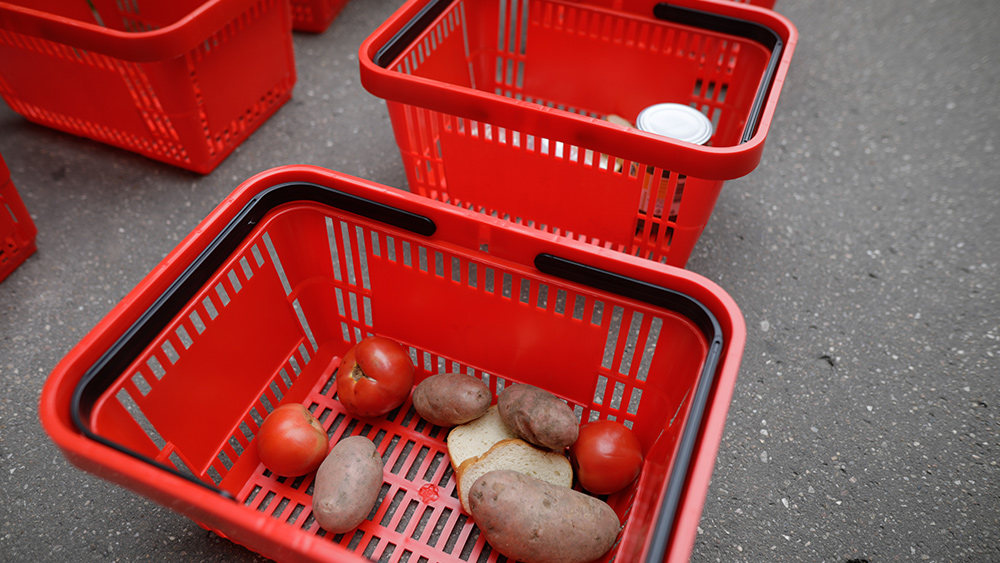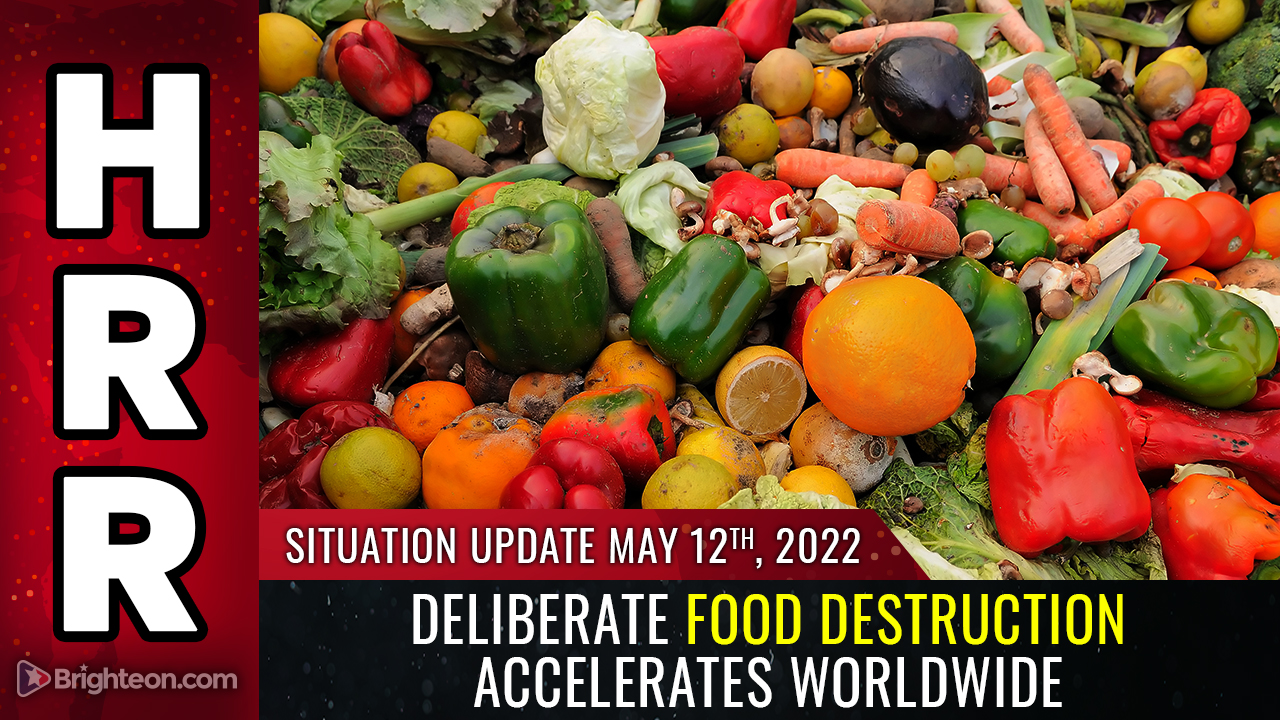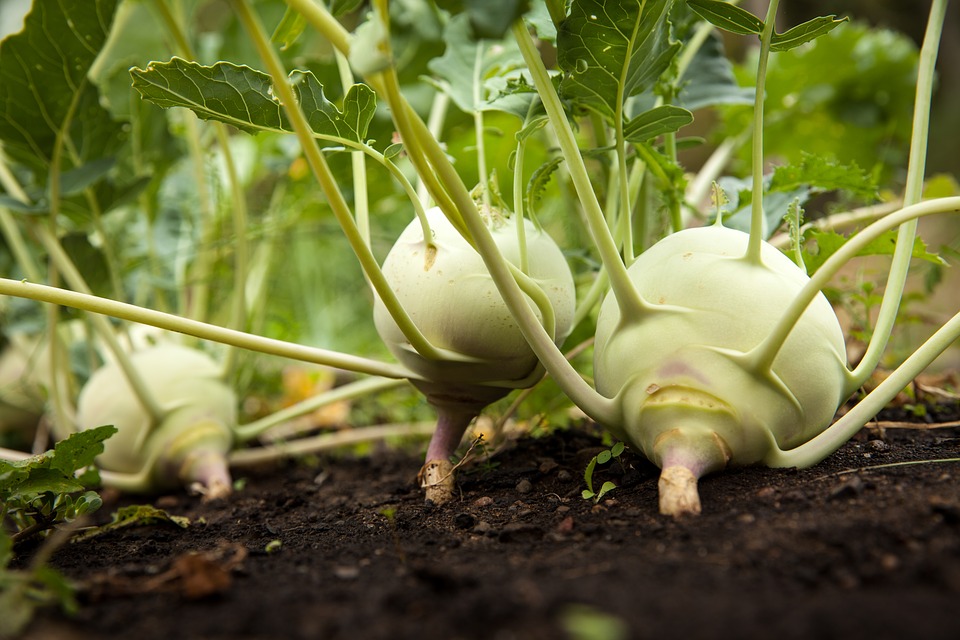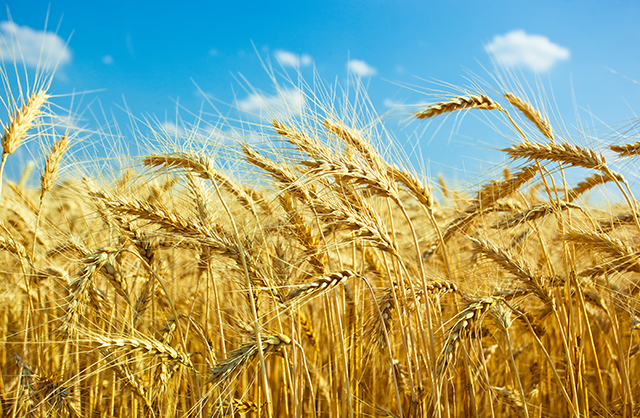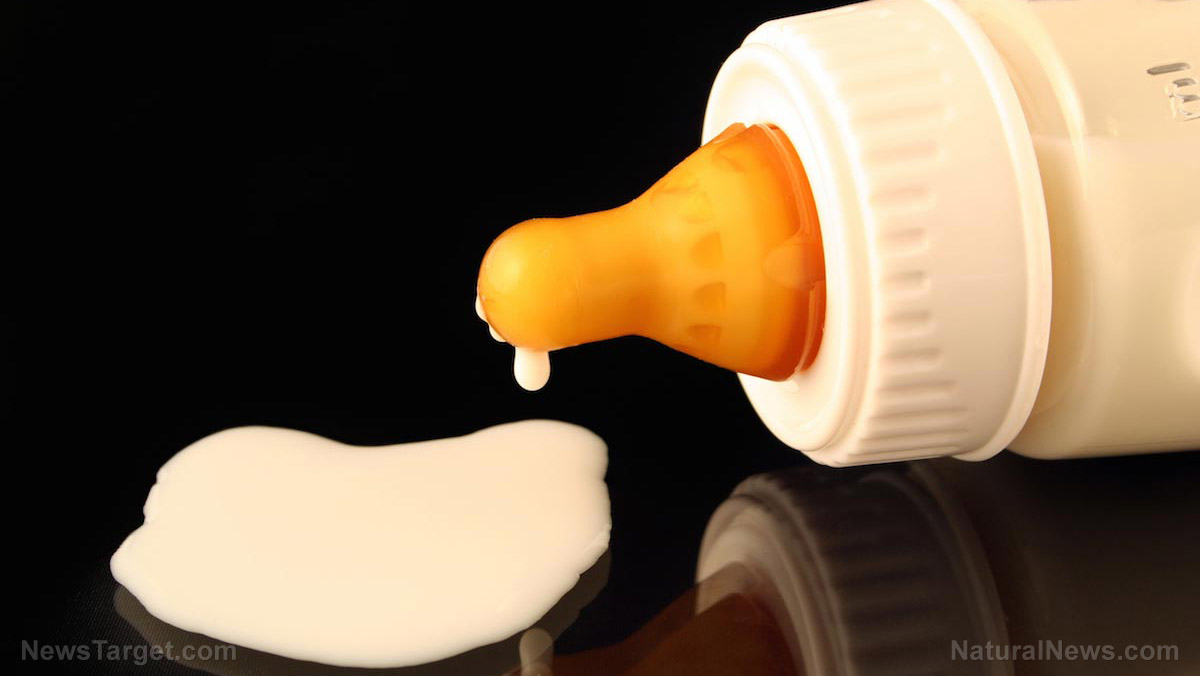Learn to make your own infant formula that’s far healthier than store-bought processed formula
05/13/2022 / By Ethan Huff

The ongoing baby formula shortage has many parents concerned, but there is no need to panic. These simple, easy-to-make recipes will provide your little ones with more nutrition than anything they could ever get from a store-bought powder.
Each of these recipes was lovingly created by the nutrition experts at the Weston A. Price Foundation (WAPF), which is dedicated to teaching people about whole foods made traditionally for optimal health.
The first one contains raw cow’s milk, which unfortunately is not available in every state or area. To see if raw milk is available near you, visit the Real Milk website.
Just to be clear, the following recipe can still be made with pasteurized commercial milk. It will not be as healthy, but it is still better than any store-bought processed formula that you might find.
Raw Milk Baby Formula
Since human breastmilk is naturally richer in whey, lactose, vitamin C, niacin, and long-chain polyunsaturated fatty acids than cow’s milk, as well as leaner in casein (milk protein), WAPF developed this recipe to render the cow’s milk as close as possible in composition to human breastmilk.
The recipe also contains gelatin, which makes the formula easier for babies to digest (this one makes 36 servings).
Ingredients:
• 2 cups whole, raw cow’s milk, preferably from pasture-fed cows
• 1/4 cup homemade liquid whey (Note: Do not use powdered whey or whey from making cheese, which will cause the formula to curdle. Only use homemade whey made from yoghurt, kefir, or separated raw milk – see recipe at WAPF website.)
• 4 tablespoons of lactose (available from Radiant Life, which you can also reach at 888-593-8333)
• 1/4 teaspoon Bifidobacterium infantis
• 1/2 teaspoon unflavored high-vitamin or high-vitamin fermented cod liver oil or 1 teaspoon regular cod liver oil (see WAPF’s recommendations)
• 1/2 teaspoon high-vitamin butter oil (optional)
• 1 teaspoon expeller-pressed sunflower oil
• 1 teaspoon extra virgin olive oil (Note: Always be sure to use the real thing.)
• 2 teaspoons coconut oil
• 2 teaspoons Frontier brand nutritional yeast flakes
• 2 teaspoons gelatin (Collagen hydrolysate is not recommended; see WAPF shopping guide for recommendations.)
• 1-7/8 cups filtered water
• 1/4 teaspoon acerola cherry powder
Instructions:
• Put 2 cups filtered water into Pyrex measuring pitcher and remove 2 tablespoons (leaving 1-7/8 cups water)
• Pour half of water into pan, place over medium flame
• Add gelatin and lactose to pan, let dissolve stirring occasionally
• Once dissolved, remove from heat and add remaining water to cool mixture
• Stir in coconut oil and optional high-vitamin butter oil, stir until melted
• Place remaining ingredients into blender
• Add water mixture and blend for three seconds
• Place in glass bottles or jars and refrigerate
• Before feeding to baby, warm bottles by placing in hot water or bottle warmer
This same recipe can be made with goat milk as well, but just be aware that goat milk lacks folate and is low in vitamin B12, both of which are vital nutrients for developing infants.
Adding more nutritional yeast to the goat milk formula will help provide extra folate. To compensate for low levels of B12, add 2 teaspoons of organic, raw chicken liver that was frozen for 14 days and finely grated.
Liver-Based Formula
WAPF’s liver-based formula also closely mimics the nutritional profile of mother’s milk. This one absolutely must include coconut oil, which is the only ingredient that provides the special medium-chain saturated fats found in mother’s milk.
Ingredients:
• 3-3/4 cups homemade beef or chicken broth
• 2 ounces organic liver, cut into small pieces
• 5 tablespoons lactose
• 1/4 teaspoon Bifidobacterium infantis
• 1/4 cup homemade liquid whey
• 1 tablespoon coconut oil
• 1/2 teaspoon unflavored high-vitamin or high-vitamin fermented cod liver oil or 1 teaspoon regular cod liver oil
• 1 teaspoon unrefined sunflower oil
• 2 teaspoons extra virgin olive oil
• 1/4 teaspoon acerola cherry powder
Instructions:
• Simmer liver gently in broth until meat is fully cooked
• Liquefy using handheld blender or food processor
• Once liver has cooled, stir in remaining ingredients
• Store in very clean glass or stainless steel container
• To serve, stir formula well and pour 6 to 8 ounces in very clean glass bottle
• Attach clean nipple and set in pan of simmering water until formula is warm but not hot to touch, shake well, and feed to baby (never heat formula in microwave)
Some readers are probably wondering why both of these recipes contain vegetable oils like sunflower and olive oil. The answer is that vegetable oils are very high in linoleic acid, which serves as a precursor for arachidonic acid, which along with DHA is necessary for proper infant development.
At four months, a baby’s first solid food should be an egg-yolk based formula, the recipe for which is available at the WAPF website, along with a simple recipe for fortifying commercial baby formula if you need a simpler shortcut.
The recipe for making your own homemade whey is also provided there along with additional tips for making the recipe process for all baby formulas as simple and organized as possible.
Take some time to peruse the WAPF website as it contains a trove of useful information about nutrition for both babies and adults alike.
“It takes me about 10 minutes now to mix up a batch,” says WAPF chapter leader Sarah Pope about her success in making highly nutritious homemade baby formula quickly and easily, offering the following additional tips:
• Set all tools, ingredients, and recipe on counter
• Measure 2 cups water, remove 2 tbsp
• Put half of water in small saucepan
• Turn dial on stove to 3.5 (low heat)
• Add gelatin and lactose and set coconut oil nearby
• Stir with baking spatula
• In blender, add milk and whey (put back in fridge)
• Add all dry ingredients (put back in cabinet or fridge)
• Then add all oils (except coconut)
• Stir water mixture again
• Take off heat, add coconut oil
• Stir slowly until melted
• Add remaining water and pour into blender
• Blend for three seconds
• Add cream and stir
More healthy home recipes can be found at Superfoods.news.
Sources for this article include:
Submit a correction >>
Tagged Under:
baby formula, child health, food science, food supply, formula, Healthy, homemade, infant formula, nutrition, recipe, WAPF, Weston A. Price Foundation
This article may contain statements that reflect the opinion of the author
RECENT NEWS & ARTICLES
COPYRIGHT © 2017 FOOD SUPPLY NEWS



